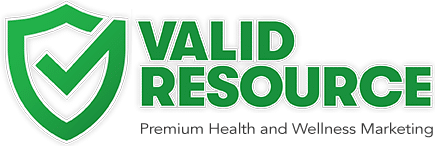Drug rehab poachers, body brokers (or whatever you prefer to call them), have been in the headlines of news outlets in the United States a lot lately. When the insurance-pilfering “Florida Shuffle” scandals broke into the mainstream consciousness, many Americans were understandably frustrated and angry.
It was sad to see that fellow human beings could be shopped around from one treatment facility to another, like they were merely a commodity, or a business asset to some, whose value decreases as their insurance coverage dries up. All of these people needed help overcoming their substance abuse and many of them died in the process, receiving little to no treatment at all. How did some addicts get sucked up into all this mess?
Watch the video or read the full post below.
Drug rehab poachers, body brokers (or whatever you prefer to call them), have been in the headlines of news outlets in the United States a lot lately. When the insurance-pilfering “Florida Shuffle” scandals broke into the mainstream consciousness, many Americans were understandably frustrated and angry. It was sad to see that fellow human beings could be shopped around from one treatment facility to another, like they were merely a commodity. A business asset to some, whose value decreases as their insurance coverage dries up. All of these people needed help overcoming their substance abuse and many of them died in the process, receiving little to no treatment at all. How did some addicts get sucked up into all this mess? Well, for those of us in the addiction treatment community who actually care about our clients, we want to apologize. We have all seen the destruction of people’s lives who just needed help. For the patients, their family and friends who have experienced an erosion of trust due to the actions of a few bad people, we have an obligation to make things right. While the truth is that a few rotten apples can ruin the batch, there are more ethical facilities out there than bad ones. While we waited for governing agencies and insurance companies to take the lead on cleaning up the rehab industry, we were in essence poised with the task of policing ourselves. Some states, like Florida have began cracking down on body brokering and fraudulent treatment facilities.
The Opioid Epidemic and the Poaching of Rehab Patients
Undeniably, the opioid epidemic has created an increase in the population of individuals who are struggling with addiction in the United States. When the Affordable Care Act was signed into law in 2010, one of the key mandates was that policies available on the insurance exchange must cover mental health and substance abuse services as essential health benefits. This mandate was intended to combat the ongoing opioid epidemic. The requirement also incentivized and assisted states to take action on battling the opioid crisis.
The total economic burden of the opioid epidemic was estimated at $78.5 billion dollars in 2013 alone. Substance use disorder (SUD) is a major public health crisis and the ACA extended coverage to millions of previously uninsured Americans through Medicaid expansion and state health insurance exchanges. The ACA (or “Obamacare”) also extended coverage to young adults up to the age of 26 from their parent’s health insurance plans. This age group is a population with high rates of SUD, and the ACA mandates that health insurance must cover preexisting conditions. With these new regulations in place, the addiction treatment industry experienced its own version of a “gold-rush”.

How patient-poachers and body-brokers entered the picture of addiction treatment in the United States.
With the growing population of Americans experiencing the dangerous problem of addiction, expanding access to treatment services through the ACA was seen by many as a huge economic opportunity. There was even a lack of oversight within insurance companies. This created loopholes that are exploited by some “bad actors”, many of whom own a small network of rehab centers, drug testing facilities and sober homes. They used these networks to transfer people from center to center, meeting enough of the requirements for the insurance coverage to pay. Some body brokers were recovering addicts themselves who saw an opportunity to make money.
Many “rehab poachers” go to local 12 step meetings, finding people with insurance and selling them to a rehab center for a kickback. They lure in people who need treatment with offers of motel rooms, money, cigarettes and sometimes even drugs.
Some insurance policies require a dirty UA (urinary analysis) to pay for treatment services. Patient brokers in the rehab industry often will pay people to relapse, just so they can get them into an addiction treatment program. This is especially dangerous for someone who had maintained abstinence for some period of time. As their tolerance is not as high as it was when they were using daily, many will think they can handle their “usual” dose. Many times they will take too much and an overdose will occur. Sadly, sometimes this overdose results in the death of the individual.
All too often, we hear stories from parents of addicts who experienced this revolving door of addiction, treatment, relapse and a repeat. Families and parents lost their children who eventually succumbed to their addictions. Many of these people have turned their blame towards the patient brokers and understandably to some extent, the addiction treatment industry as a whole.
The SUPPORT Act made the practice of body-brokering illegal at the Federal level.
In October of 2018, President Trump signed a collection of over 200 bills aimed at combating the opioid epidemic into law. This was called the SUPPORT for Patients and Communities Act and one of the major components was to curb some of the shady practices used by the industry, including body brokering. To strengthen these provisions, the law makes treatment center operators legally responsible for actions of their staff and 3rd party marketing agencies, even if they didn’t know how the patients were coming in.
Since the new laws have made kickbacks illegal, (the money that drove the body-brokering practice in the first place) a lot of treatment centers are having a hard time keeping their doors open. This is not to say that every shady facility is failing and leaving all the business to the good, ethical facilities. To say that would be very far from the truth.
The state of the addiction treatment industry today is somewhere in between. Many ethical centers, who offered quality treatment and had legitimate intentions to help people overcome their addictions used patient brokers, kickbacks and referral partners to fill their beds, that’s pretty much what everyone did. But the times have drastically changed, we think for the better.
A Standard Healthcare Model for the Marketing of Drug Rehabilitation Centers.
Building a reputation of trust within your community is the cornerstone of a great marketing strategy for addiction treatment centers in 2019. The remnants of scandals like the “Florida shuffle” and drug rehab poachers are still predominant in the American zeitgeist. These scandals arguably made the legitimate drug rehab centers financially suffer just as hard as the shady ones. Whether your facility was participating in things that are now illegal or not, the industry as a whole has suffered from all of this negative publicity.
Many of us here at Valid Resource have lost someone close to us in the opioid epidemic. We see the promises of regulatory oversight and cleaning up the drug rehab industry as something that can only be a good thing for addicts. They are the reason our industry exists and in a perfect world we all would do what is going to be the best for them. Our mission is to keep the good rehab centers open for business so they can help the over 22 million Americans who currently struggle with addiction and substance abuse. Let’s help each other save lives.

Kreed is the senior content strategist at Redbear. He has lost 3 very close friends and a bandmate to the opioid epidemic. He is passionate about helping people who really need it. He can be found performing or watching live music on most weekends or playing with his dogs down by the Boise River.






